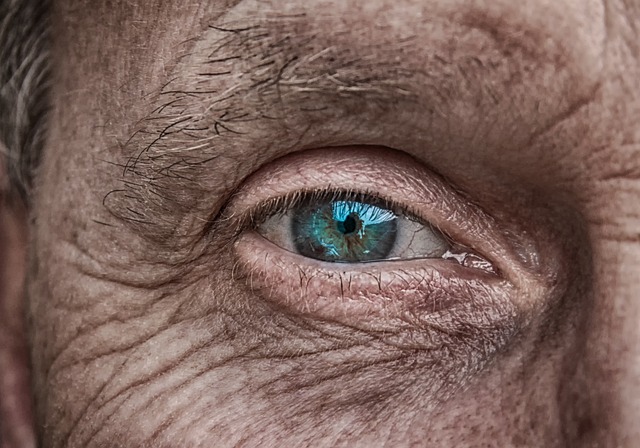Residents of Birmingham considering skin tag removal have several safe and effective options, including natural remedies like tea tree oil, apple cider vinegar, and castor oil, which can be used at home with caution. These treatments utilize the antimicrobial properties of tea tree oil, the acetic acid in apple cider vinegar, and the ricinoleic acid in castor oil to address skin tags. A balanced diet rich in vitamin C and zinc, along with regular exercise and hydration, can also play a role in preventing new skin tag growths by maintaining overall skin health and managing factors like insulin resistance and obesity linked to their development. While at-home methods are available, it's crucial to approach them with care to avoid complications such as infection or scarring. For those seeking professional medical advice, laser therapy and other clinical interventions are available in Birmingham clinics, providing minimally invasive solutions under expert supervision. It's important for individuals to consult with a healthcare professional before attempting any at-home removal methods or deciding on a professional treatment to ensure safety and effective management of skin tags.
explore effective home remedies for skin tag removal tailored for residents of Birmingham. This article demystifies skin tags’ nature and their origins, offering insightful guidance through natural treatments, dietary adjustments, and advanced DIY techniques to safely manage these benign growths. Discover how to address skin tags with a holistic approach, enhancing your skin’s health in alignment with Birmingham’s vibrant lifestyle.
- Understanding Skin Tags and Their Causes: A Guide for Residents of Birmingham
- Natural Home Remedies for Skin Tag Management: Safe and Effective Solutions for Birmingham Locals
- The Role of Diet and Lifestyle in Managing Skin Tags: Tips for Birmingham Residents to Promote Healthy Skin
- Advanced DIY Techniques for Skin Tag Treatment: What Birmingham Should Know Before Self-Treating
Understanding Skin Tags and Their Causes: A Guide for Residents of Birmingham

Understanding skin tags is the first step in effectively managing them, especially for residents of Birmingham seeking home remedies for skin tag removal. Skin tags are benign growths that resemble tiny flaps of hanging skin, often found on areas such as the neck, armpits, and groin. They can vary in size from a few millimeters to several centimeters and are typically painless, though they may become irritated when shaved or rubbed against clothing.
The exact cause of skin tags is not entirely clear, but they are known to develop due to friction, rubbing, or pressure on the skin, which could explain their frequent occurrence in areas where clothing causes contact with the skin. Factors such as insulin resistance and obesity have also been associated with skin tag development, making it important for individuals to maintain a healthy lifestyle. Hormonal changes, particularly during pregnancy, can also lead to the formation of skin tags. For those in Birmingham seeking natural treatment options, home remedies like tea tree oil, apple cider vinegar, and castor oil have been anecdotally reported to help in treating skin tags. It’s crucial for residents to consult with healthcare professionals if they are considering any at-home removal methods to ensure safety and prevent scarring or infection. Understanding the nature of skin tags and their potential causes can empower Birmingham residents to take informed actions towards their removal, whether through home remedies or professional medical intervention.
Natural Home Remedies for Skin Tag Management: Safe and Effective Solutions for Birmingham Locals

For residents of Birmingham seeking effective and natural solutions for skin tag removal, a plethora of home remedies offer safe and manageable options. Tea tree oil, renowned for its antimicrobial properties, can be applied directly to skin tags with the help of a cotton swab, twice daily. This natural treatment not only aids in drying out the tag but also promotes a healthy skin environment. Another home remedy involves the use of apple cider vinegar, which can be diluted and gently applied to the affected area using a cotton ball. The acetic acid present in vinegar works progressively by breaking down the cells of the skin tag over time, leading to its eventual fall-off. It’s imperative to conduct a patch test first, as this treatment may cause irritation for some individuals. Furthermore, castor oil, rich in ricinoleic acid, can be applied to skin tags nightly with the aim of softening and shrinking them due to its moisturizing and healing properties. These natural methods are often preferred by those who prioritize avoiding the potential side effects associated with medical treatments or surgical removal.
Incorporating these home remedies into your skincare routine can be a wise choice for Birmingham locals seeking to address skin tags in the comfort of their own home. However, it’s crucial to exercise patience and consistency, as natural remedies may take longer to produce results compared to clinical methods. Always ensure that you source high-quality ingredients and consider consulting with a healthcare professional before initiating any new treatment, particularly if you have sensitive skin or underlying health conditions that could be affected by these remedies.
The Role of Diet and Lifestyle in Managing Skin Tags: Tips for Birmingham Residents to Promote Healthy Skin

Maintaining a balanced diet and adopting healthy lifestyle habits play pivotal roles in managing skin tags, a common benign growth on the skin. For Birmingham residents seeking to promote overall skin health and potentially reduce the presence of skin tags, incorporating certain nutrients and practices can be beneficial. Firstly, prioritize consuming a variety of fruits and vegetables rich in antioxidants, which may help protect against cellular damage that could lead to skin tag development. Foods high in vitamin C, such as oranges, berries, and broccoli, are particularly advantageous. Additionally, zinc-rich foods like nuts, seeds, and legumes can support immune function and wound healing, which is crucial for maintaining healthy skin.
Beyond dietary considerations, lifestyle factors also significantly impact skin health. Adequate hydration is essential; drinking ample water daily aids in flushing out toxins and keeping the skin hydrated, which can prevent dehydrated skin from becoming more prone to developing skin tags. Regular exercise not only improves circulation but also helps in maintaining a healthy weight, reducing strain on the skin, and minimizing friction that might contribute to skin tag formation. Furthermore, avoiding tight clothing and excess body weight can alleviate pressure points where skin tags often appear. For those in Birmingham looking for skin tag removal options or aiming to prevent new growths, adopting these dietary and lifestyle changes could be a valuable addition to their routine, complementing professional treatments like Birmingham Skin Tag Removal services.
Advanced DIY Techniques for Skin Tag Treatment: What Birmingham Should Know Before Self-Treating

When addressing skin tags, a common benign growth, individuals in Birmingham seeking skin tag removal options may consider advanced do-it-yourself techniques. It’s crucial to approach such treatments with caution and thorough understanding, as self-treatment carries inherent risks. For those in Birmingham considering at-home skin tag removal, it’s essential to research methods that are both safe and effective. One such technique involves natural acid applications, like apple cider vinegar or tea tree oil, which can cause the skin tag to dry up and fall off over time. However, this method requires patience and consistent application, and results may vary. Another technique is cryotherapy, which uses extreme cold to freeze the skin tag, causing it to separate from the surrounding tissue. This should only be done using a device specifically designed for cryotherapy to avoid damage to the underlying skin.
Furthermore, Birmingham residents should be aware of the potential complications, including infection or scarring, when attempting more invasive techniques such as ligation or cauterization. These methods are best performed by a healthcare professional. In the event of persistent or bothersome skin tags, it’s always recommended to consult with a dermatologist. They can provide professional guidance on the most appropriate treatment method tailored to individual skin conditions and health history. Additionally, for those who prefer non-invasive medical treatments, laser therapy is an option available at dermatological clinics in Birmingham. This treatment is performed under the supervision of a trained professional and utilizes precise laser technology to target and remove skin tags with minimal discomfort and risk of complications.
In conclusion, managing skin tags at home can be accomplished through a combination of understanding their causes, employing natural remedies, and maintaining a health-conscious lifestyle—all tailored for the residents of Birmingham. The strategies outlined in this article, encompassing natural treatments, dietary considerations, and advanced DIY techniques for skin tag removal, provide a comprehensive approach to addressing this common skin concern. By adhering to these methods, individuals in Birmingham can effectively manage skin tags with safety and confidence. Remember to always prioritize gentle and proven home remedies before considering more aggressive treatments, ensuring the best possible care for your skin.
